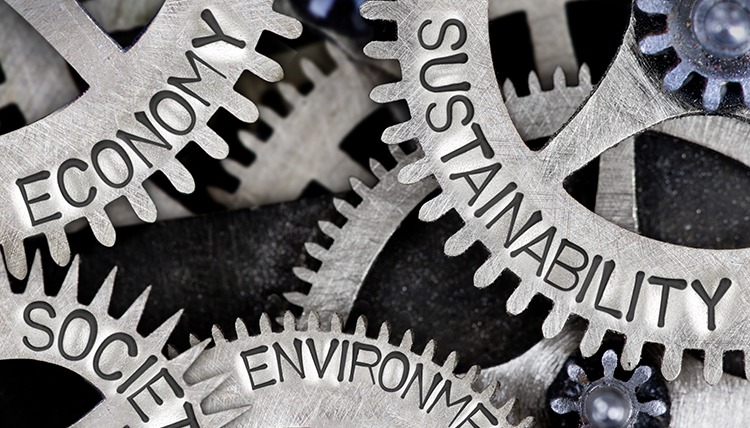Sustainability: What is on the Minds of CEOs
Investors and capital markets are playing an increasingly important role in CEOs’ decision-making for their companies’ sustainability goals and actions.
Findings from UN Global Impact–Accenture study
In the largest sustainability study conducted to date by the United Nations Global Compact and Accenture, only 18% of CEOs said that governments and policymakers have given them the clarity needed to meet their sustainability and climate-change targets. The United Nations Global Compact is a non-binding UN pact to encourage businesses and firms worldwide to adopt sustainable and socially responsible policies and to report on their implementation. The UN Global Compact is composed of more than 9,500 companies, and of this total, more than 1,000 have committed to set 1.5°C-aligned science-based targets through the Business Ambition for 1.5°C campaign an international goal of limiting global warming to 1.5 °C by 2030. To achieve this goal, greenhouse emissions must be halved before 2030 and reach net-zero before 2050. The study was released in advance of the 26th UN Climate Change Conference of the Parties (COP26), a large international gathering of governmental leaders, which was held in Glasgow, Scotland, from October 31 to November 13, 2021.
The study included one-on-one interviews with more than 100 CEOS and surveyed over 1,230 CEOs across 113 countries. The study showed that business leaders are concerned on the early onset of climate-induced disruption and are looking for government action—particularly in areas of clear carbon pricing, infrastructure investment, and financial commitments to an equitable net-zero transition in the Global South, which broadly refers to the regions of Latin America, Asia, Africa, and Oceania.
The study showed that private sector leaders are struggling to accelerate their climate ambitions, even though nearly three-quarters (73%) say they feel increasing pressure to act. More than half (57%) of surveyed executives say they are prioritizing climate action amid their recovery from the COVID-19 pandemic. Forty-nine percent of CEOs point to supply-chain interruptions due to extreme weather as a top risk, but only 7% said they are ‘advanced’ in setting up early-warning systems to prepare for climate-risk events. Moreover, 71% say they are actively working to develop a net-zero emissions target for their company, and 57% believe they are operating in line with the 1.5°C goal. Yet as an indicator, only 2% of these companies have a formal target validated by the Science-Based Targets initiative (SBTi). SBTi is a global body that launched a Net-Zero Standard said to be the world’s first framework for corporate net-zero target-setting in line with climate science. Launched in late October (October 2021), seven companies, including AstraZeneca, were among the first companies worldwide to have science-based net-zero targets verified by the SBTi.

“There are two possible roads ahead: a deeply flawed business as usual approach, or a global economy that protects people, the planet and the natural systems that sustain us,” said Sanda Ojiambo, CEO and Executive Director of the UN Global Compact, in commenting on the study. “Business as usual is no longer an option. It is clear from the CEOs we surveyed that the business community feels unprepared to deal with our climate emergency. The UN Global Compact has a critical role to play in helping companies develop practical tools and effective best practices to deal with the challenges ahead while also ensuring they can engage with governments on policy and regulation.”
The study also points to a key stakeholder shift when it comes to driving CEO’s climate leadership and action. The biggest shift seen in 14 years of the study is the increasing influence of investors and capital markets in CEO’s decision-making at it relates to their climate policies, moving from eight as a concern in 2019 to the top 3 in the minds of CEOs. The trend reflects the largest jump in stakeholder influence since the study’s inception in 2007 as investors put ever greater pressure on businesses to map the risks and understand the opportunity presented by the transition to a 1.5-degree net-zero global world, according to the UN Global Compact.
“The Sustainable Development Goals and the Paris Agreement commitments offer the clearest roadmap for how business should lead on climate and the innovation required to solve the world’s greatest challenges. But with only a narrow window of time left to meet these goals, and with the physical effects of climate change being felt sooner than most CEOs expected, leaders must be stand up and be held accountable for measurable performance,” said Peter Lacy, Accenture’s Global Sustainability Services Lead, Chief Responsibility officer, and Member of the Global Management Committee, in commenting on the study. “The science, economics and data tell us that when leaders bridge business value with sustainability and technology impact, competitive advantage can thrive.”
The UN Global Compact–Accenture study highlights efforts from CEOs to increase their sustainability budgets, diversify their operations and workforces, and accelerate R&D in climate-resilient practices. Though nearly two-thirds (65%) of leaders are already advancing new net-zero business models and solutions to meet their goals, only 16% of all CEOs said their maturity is at an advanced stage.
“CEOs used to say that the relevant technologies were too nascent. Well, they’re now mature. Or they would say that investors and capital markets were not fully on board with ESG [Environmental, Social and Governace] data. But they are now. What we simply don’t have more of now is time. Governments must act, and CEOs are ready to step up. This is not just the right thing to do—there is real business value at stake as well,” said Accenture’s Lacy.
The study showed five main areas in which business leaders are seeking further policy action as outlined below:
- Align Nationally Determined Contributions (NDCs) to a 1.5°C warming trajectory
- Enhance global cooperation on carbon pricing mechanisms aligned with the Paris Agreement
- Meet and exceed the US$ 100-billion commitment in climate financing for the Global South
- Establish common standards for biodiversity protection and pathways for nature-based solutions
- Increase business engagement in climate policy formation for collaborative climate action.







